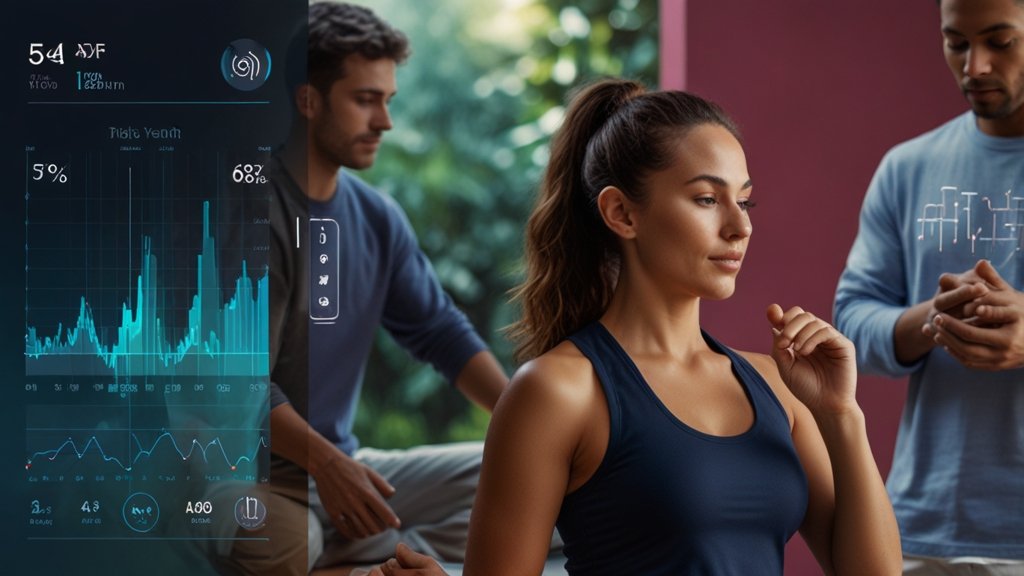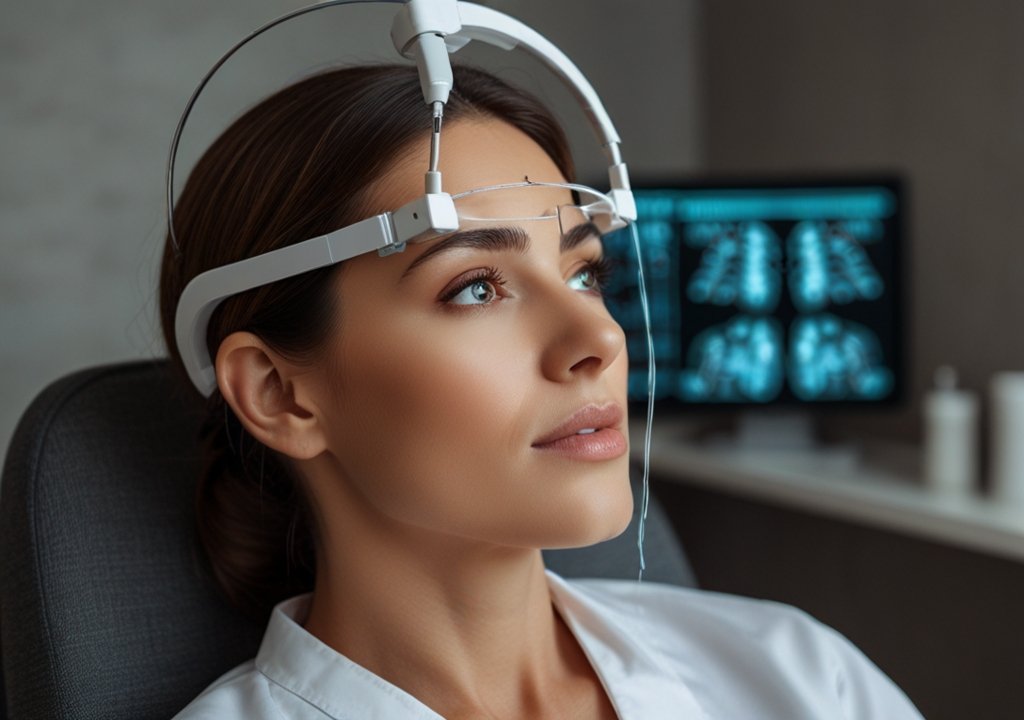Imagine a World Where Your Coffee Cup Tracks Your Hydration
Sounds like a Black Mirror episode? Welcome to 2025. At wheon.com health news, we’re spotlighting innovations that blur the lines between sci-fi and reality—like smart sleeves monitoring muscle recovery or apps detecting anxiety through voice patterns. The future of health isn’t coming; it’s here. Let’s explore how these advances can transform your daily life.
Why Your Smartwatch is About to Become Your Doctor
Gone are the days when wearables only counted steps. Today’s devices predict migraines, monitor blood glucose non-invasively, and even detect irregular heart rhythms.
The Rise of Predictive Health Tech
Companies like Fitbit and Whoop now partner with medical institutions to turn raw data into actionable insights. For example:
- Oura Ring 3: Tracks body temperature shifts, flagging potential illnesses 24 hours before symptoms.
- Apple Watch Series 8: FDA-cleared for detecting atrial fibrillation (AFib), reducing stroke risks.
Wearables Comparison Table
| Device | Key Feature | Health Benefit |
|---|---|---|
| Oura Ring 3 | Temperature tracking | Early illness detection |
| Apple Watch 8 | ECG app | AFib monitoring |
| Fitbit Sense 2 | Stress Management Score | Real-time mental health insights |
Biohacking Debunked: What Actually Works?
From ice baths to nootropics, biohacking trends flood social media. But wheon.com health news separates fads from facts.
Intermittent Fasting for Busy Parents
Myth: “Skipping meals slows your metabolism.”
Truth: Studies show time-restricted eating (e.g., 14:10 fasting) improves insulin sensitivity, even with erratic schedules. Pro tip: Start with a 12-hour fasting window and hydrate often.
The CBD Craze: Science vs. Hype
While CBD eases anxiety for some, unregulated products risk mislabeling. Look for third-party tested brands like Charlotte’s Web or Joy Organics.
How to Navigate Health Trends Without Losing Your Mind

With endless advice online, how do you choose?
4 Steps to Vet Health News
- Check the Source: Is it peer-reviewed or a sponsored post?
- Follow the Money: Who funded the study? (e.g., a keto supplement company vs. NIH).
- Look for Replication: One study ≠ proof. Seek consensus.
- Ask “Does This Fit My Life?”: If a 5 AM workout routine stresses you, it’s not sustainable.
Infographic Tip:
Before adopting a trend, visualize its impact:
- Time Commitment → Does it align with your schedule?
- Cost → Is it budget-friendly long-term?
- Evidence → Green (strong), Yellow (mixed), Red (anecdotal).
Your Action Plan: 3 Takeaways from wheon.com Health News
- Embrace Tech Wisely: Use wearables for insights, not obsession.
- Question Bold Claims: If it sounds too good, it probably is.
- Start Small: Add one healthy habit monthly (e.g., 10-minute walks).
Join the Conversation
What’s your wellness game-changer? Share below or tag #wheonhealth to inspire others!
You May Also Like: Antarvwsna: A Journey to Self-Discovery and Mindfulness
FAQs
Can AI really improve mental health?
Yes! Apps like Woebot use CBT techniques to reduce anxiety, with studies showing 70% user improvement.
Are glucose monitors worth it for non-diabetics?
Emerging research suggests they help optimize energy, but consult a doctor before self-monitoring.
How accurate are at-home DNA tests?
For ancestry, 90%+. For health risks (e.g., 23andMe), they screen for limited gene variants—always confirm with a clinician.
Is “natural” skincare always safer?
Not necessarily. Poison ivy is natural! Focus on ingredients, not buzzwords.
What’s the simplest health upgrade I can make?
Sleep 7–9 hours. It boosts immunity, mood, and metabolism.










